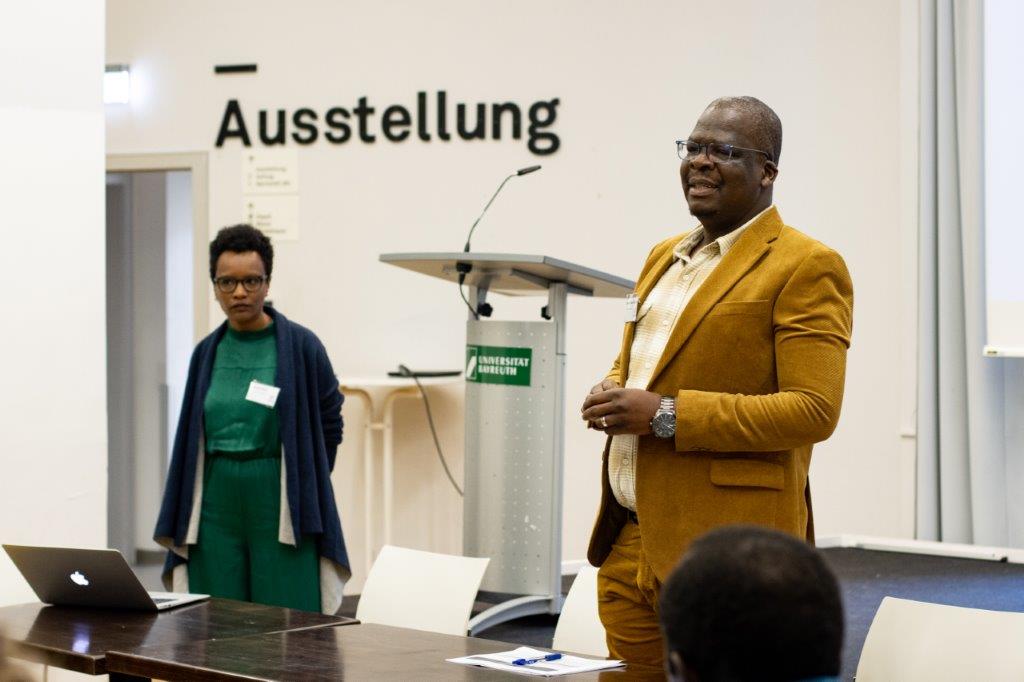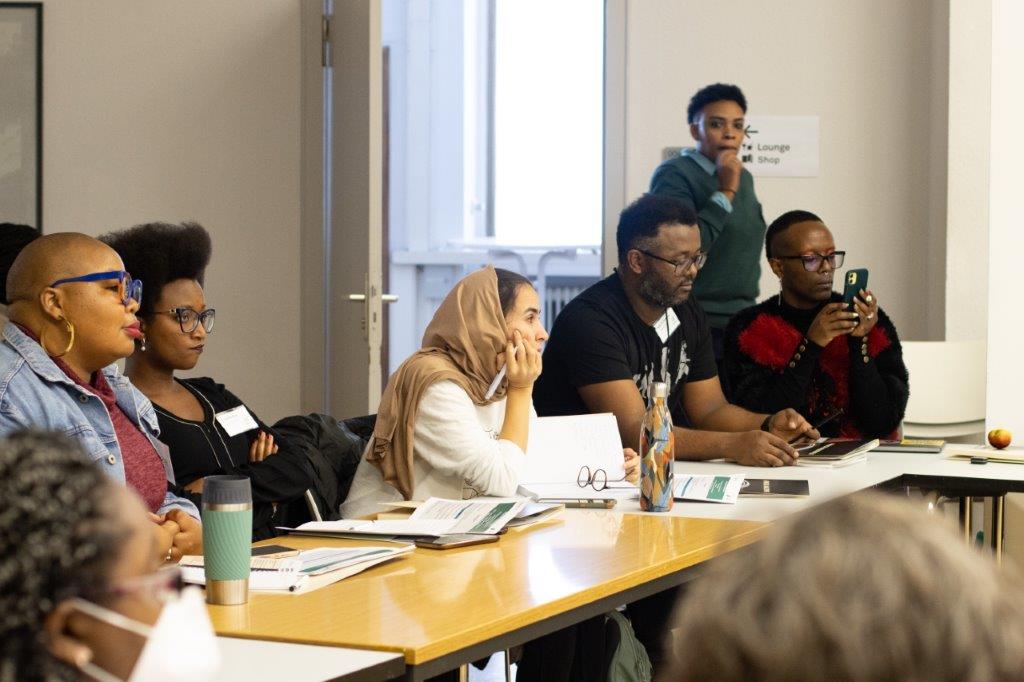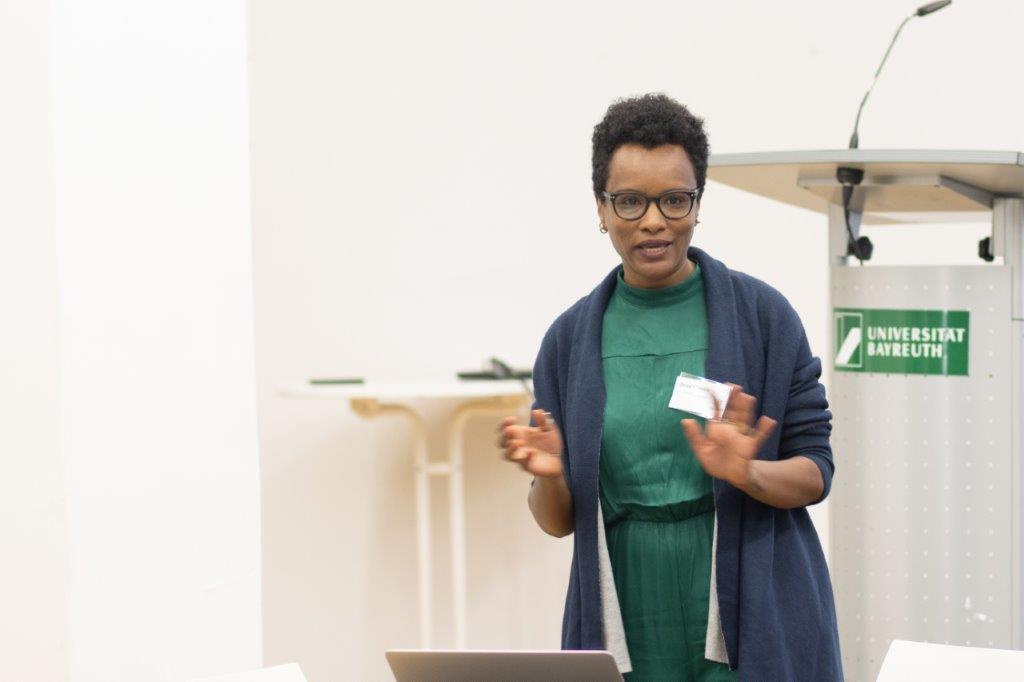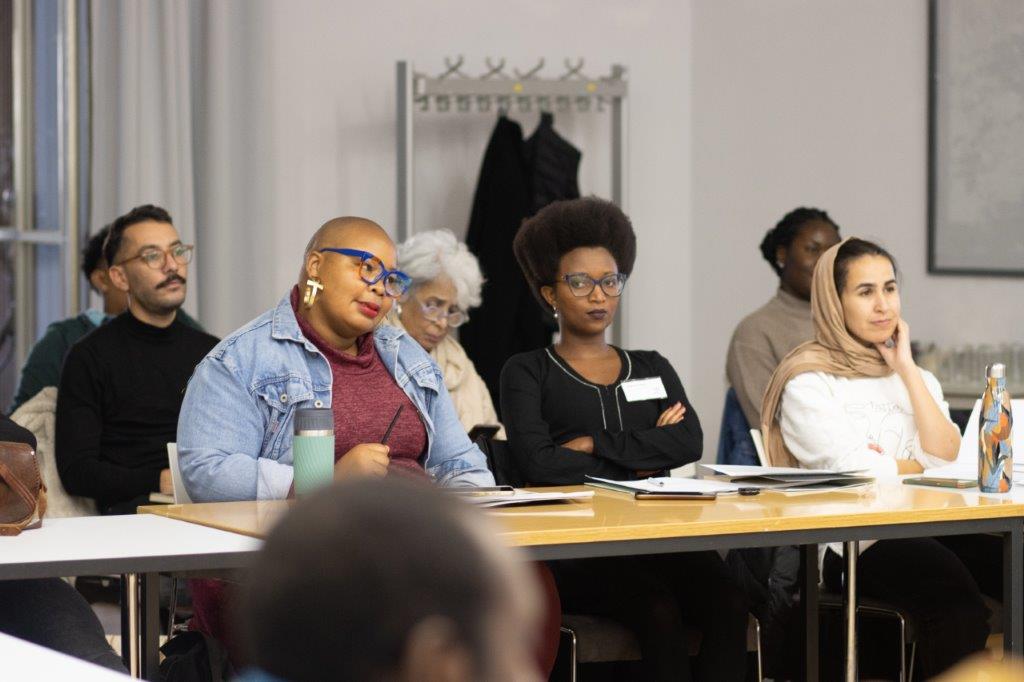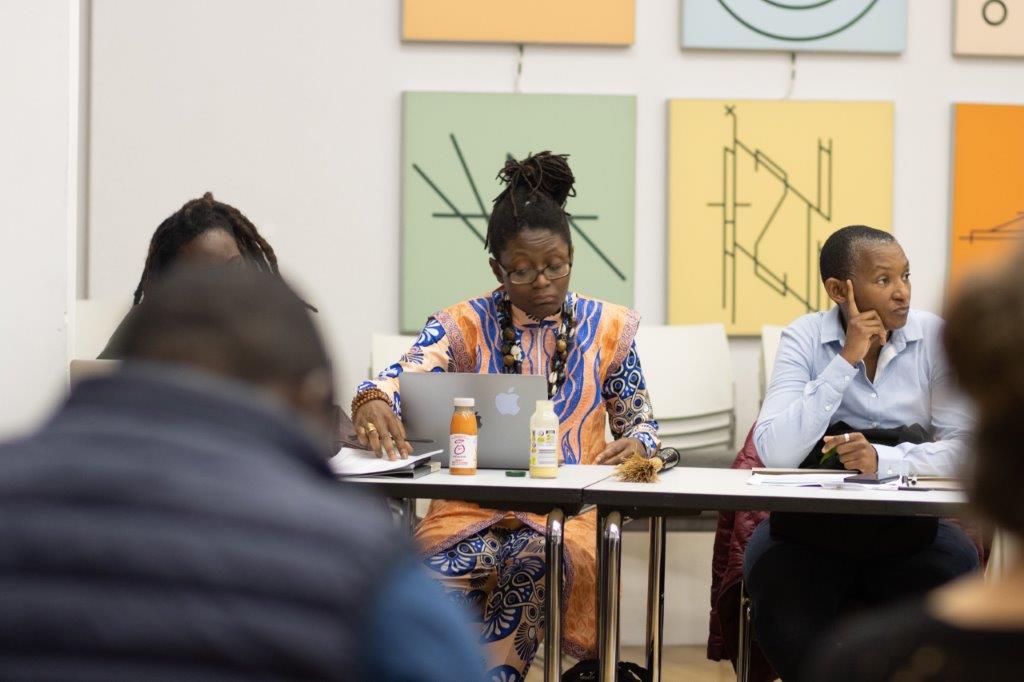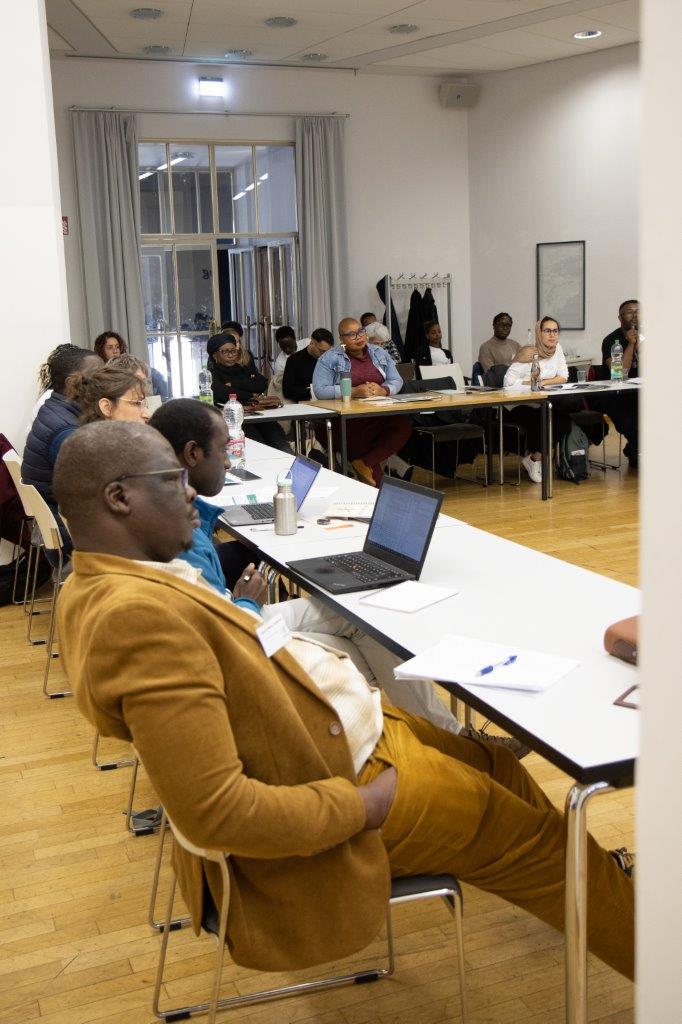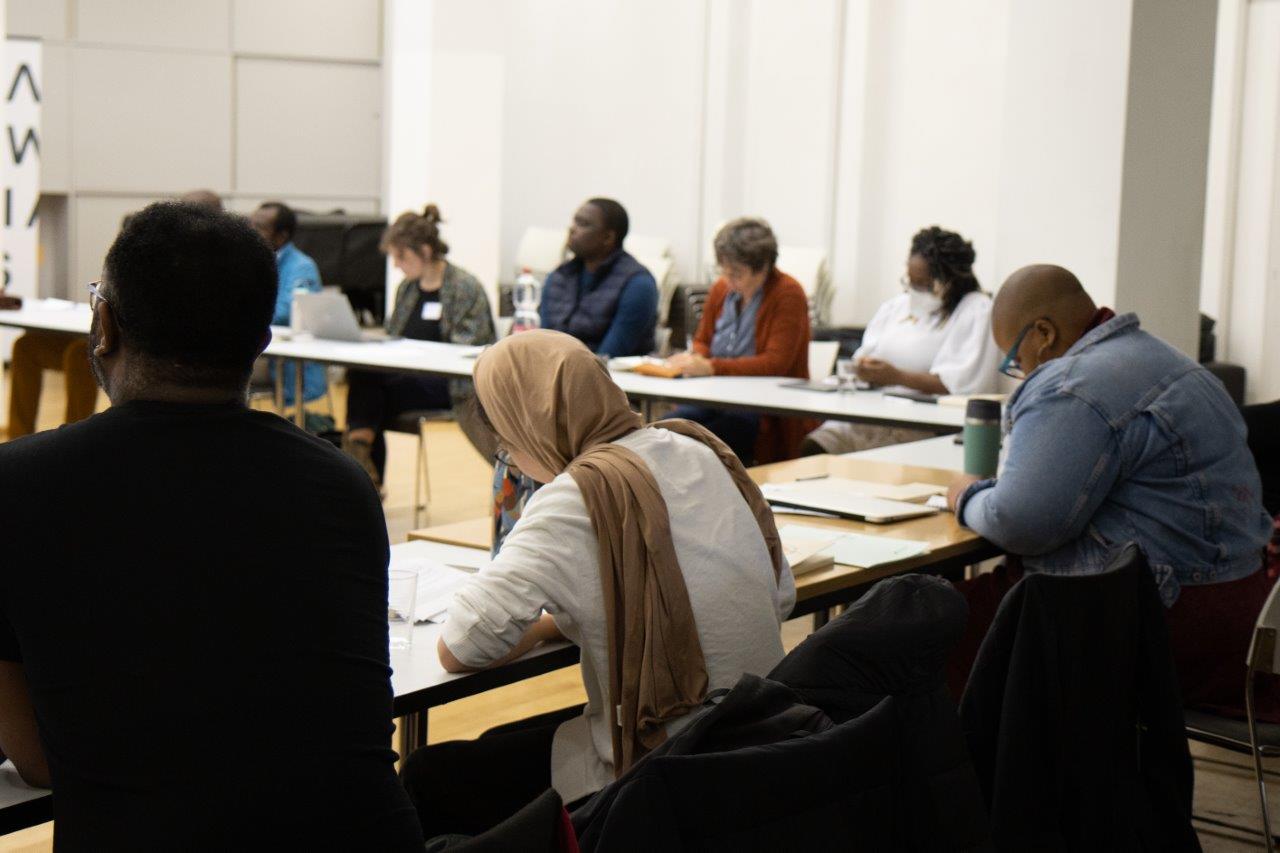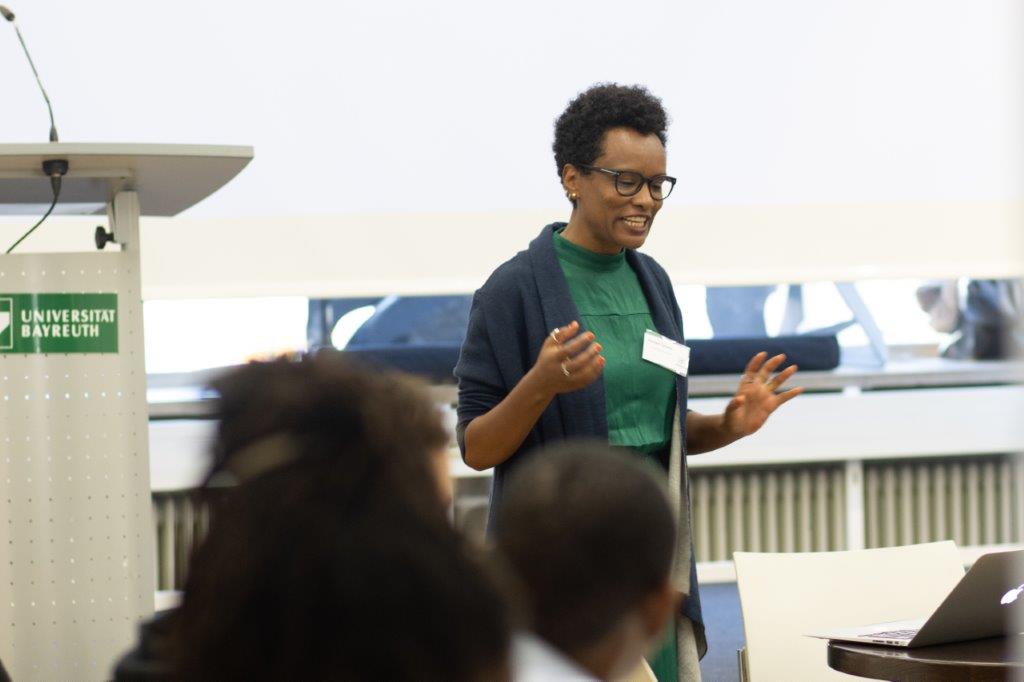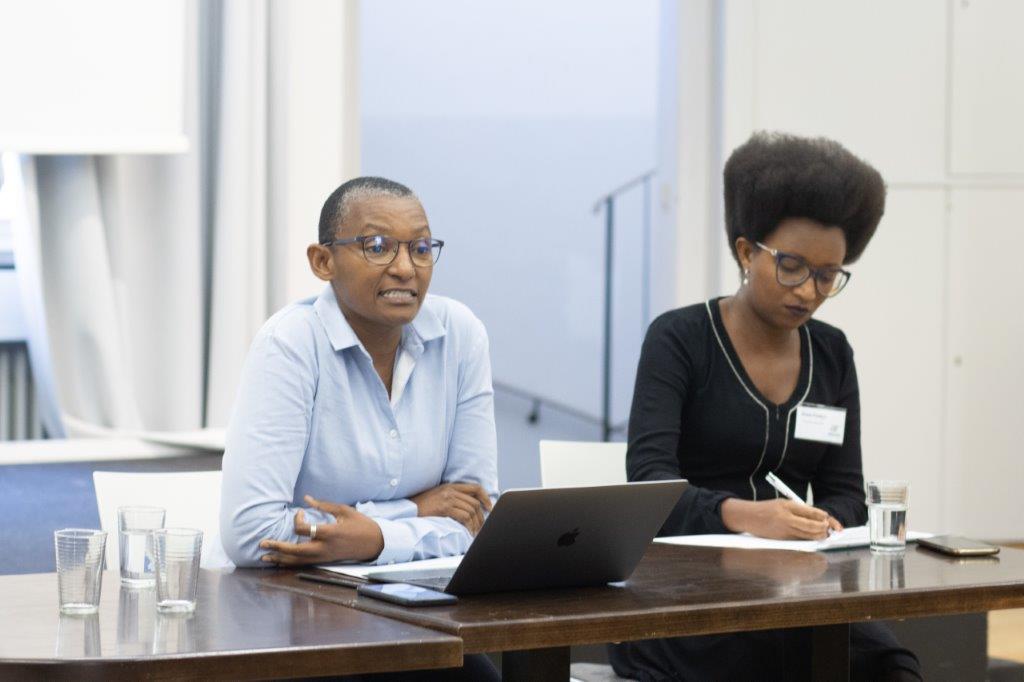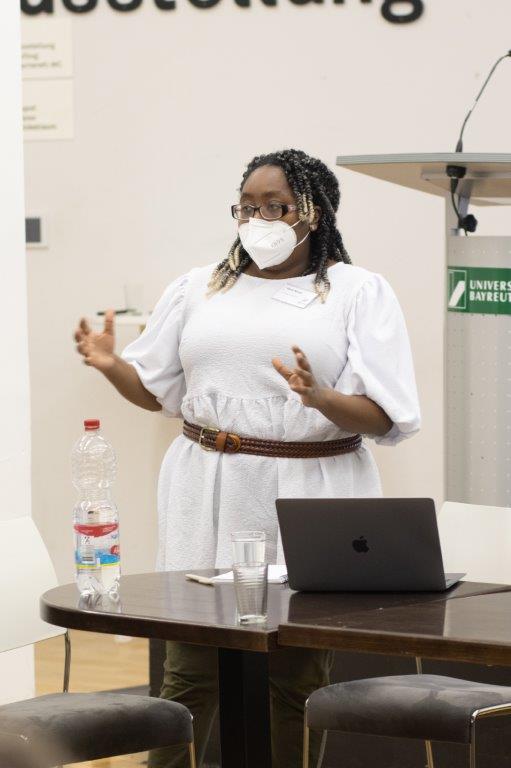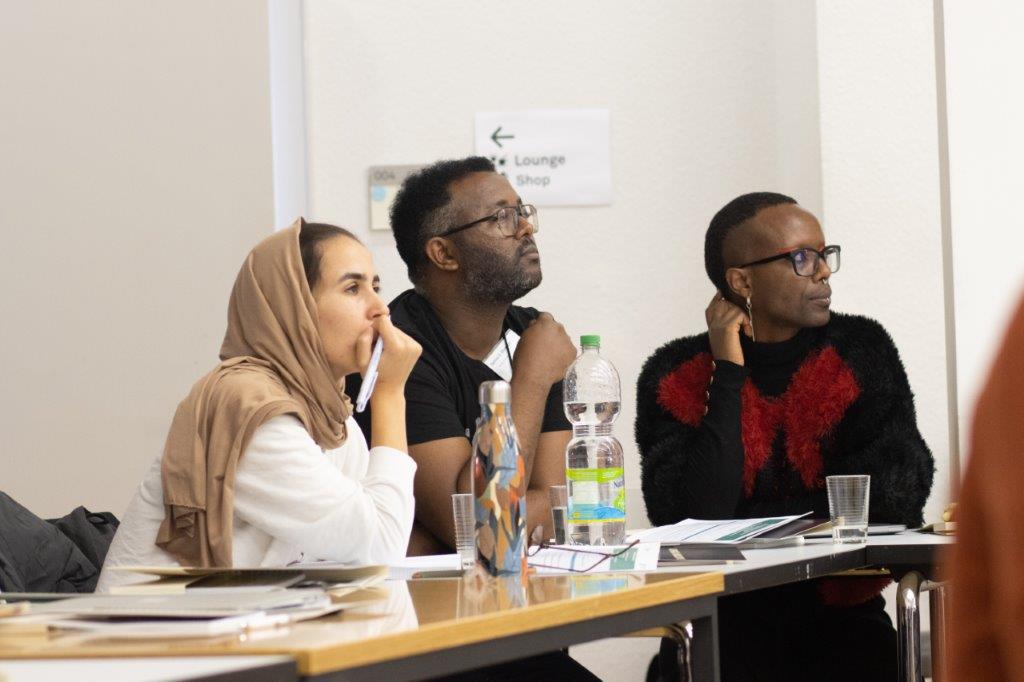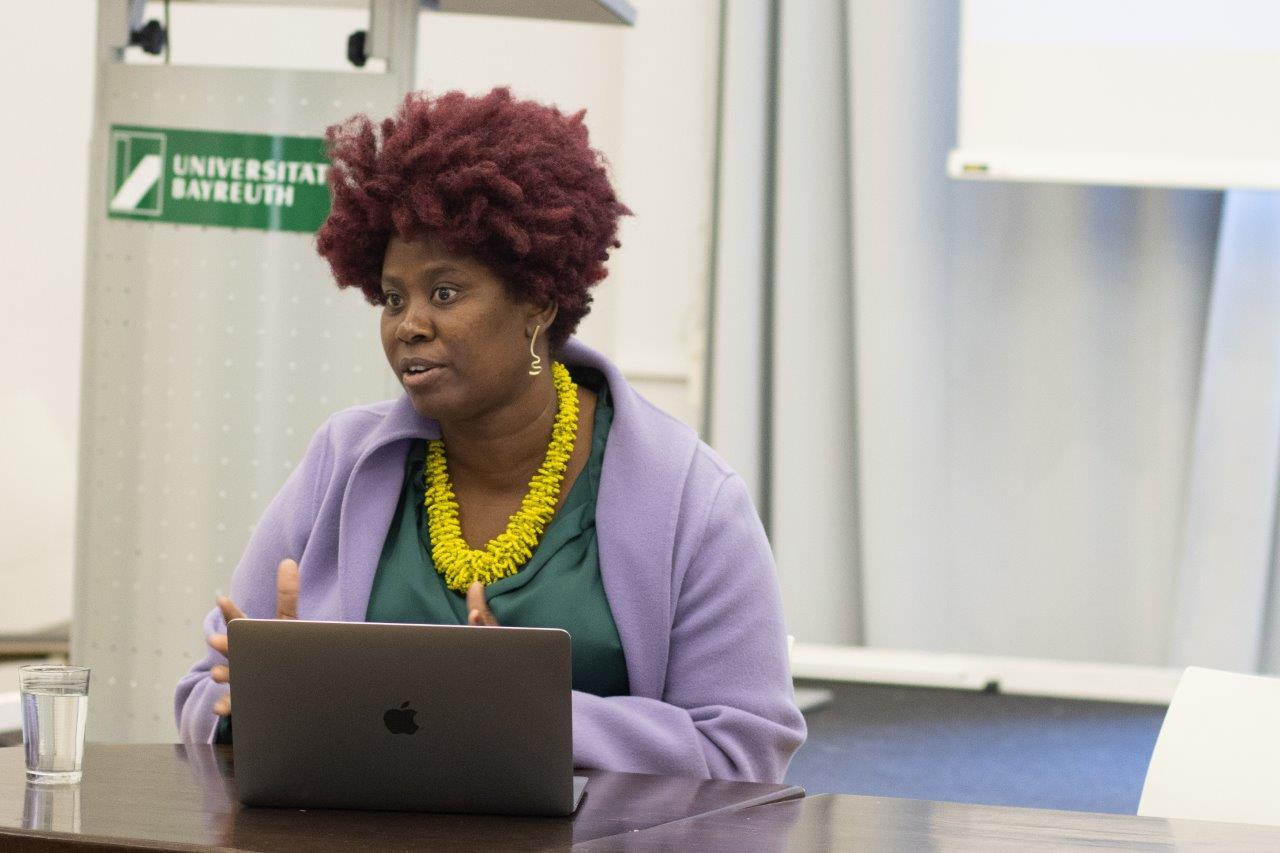News
Thinking and doing intersectionality in/from Africa

Thinking and doing intersectionality in/from Africa
Workshop report from the JRG Intersectionality research team
The workshop was organised by the Junior Research Group led by Dr. Serawit Debele and was held from October 17th to 19th, 2022. The event served as a venue of interaction for activists and academics from around the continent and the Diaspora (Sudan, Tunisia, Cameroon, Ethiopia, Egypt, South Africa, Uganda, Zimbabwe, Mozambique, England, Austria, USA and Germany) and from different disciplines (Law, Anthropology, Economics, Gender and Sexuality, History, Political Science, and Religious Studies). In addition to the invited guests, the workshop was also open to all members of the cluster.
The main objective of the workshop was to explore and debate the purchase of intersectionality in both academic and activist spaces in Africa. The activists and scholars came together to explore practices and theorisations of intersectionality in the African context and specifically among minoritised/marginalised groups. Diverse issues- such as how knowledge production can translate into/shape activism and how scholars imagine the practicality of some of the work they do, as well as how activists’ inputs might be thought of to further scholarship that reflects lived experiences- were raised.
In addition to the conventional paper presentation and discussion by researchers working on the topic, the workshop was unique particularly in the way it was designed to integrate activists. The presence of the activists was crucial in generating productive conversations that look at intersectionality from diverse situated knowledges and experiences. One of the ways by which the workshop achieved a genuine engagement was assigning an activist as a respondent to each panel. With this format, activists were invited to reflect on and challenge the production/application of knowledge with respect to intersectionality. Drawing on their own experiences, they broadened the talks in a way that consider insights from the respondent’s respective contexts, some of which would be included in future research.
A roundtable in which six activists deliberated on the relevance of intersectionality to their work was the second design that made the workshop inclusive and generative. The activists introduced their work, their organisations, and reflected on the state of activism that goes beyond meetings, workshops, conferences and major events on which most of the fund is spent. Issues raised revolved around how intersectionality as a tool has informed activism and advocacy work in contexts where even progressive folks believe that the question of queer Africans and those in the diaspora is not one of priority; how knowledge production in/about queer Africans shapes their activism, and the state of conversation between activists and academics. In the spirit of exchanging experience, the activists reflected on challenges faced on the ground. One prominent example concerned the politics of funding and how it affects their work by controlling the scene of activities and creating competition over resources. In relation to this, each activist reflected on their positionality, the politics of privilege, the kind of language mobilised to win grants and how their own relative privilege shapes the mobility of funds. Another striking observation was the fact that funders demand the inclusion of intersectionality in the grant proposals. However, the participants highlighted the discrepancy between the talk on paper to promote an intersectional work and the gap when it comes to the actual practice. Finally, there were heated discussions about the ethics of research, archiving queer histories and the question of access. While researchers in the room lamented that activists are receptive of researchers from the global north, mainly white scholars, they do not provide the same support to African scholars. On their part, activists challenged the scholars of the “ivory-tower syndrome” that many researchers have and pointed out how that contributes to the lack of dialogue as well as appreciation of each other’s role in bringing about social change.
The workshop contained an audiovisual element too. The significance of using audiovisual elements was to keep the sessions dynamic and interesting as well as diversify ways of knowledge-making and presenting. It was also a chance for more voices to be heard to deepen the engagement with the materials. Samah, the doctoral researcher on the project screened a series of short documentaries she produced during her fieldwork in Sudan. For instance, she introduced the participants to a Sudanese feminist who converted her house into an archive of the Sudanese revolution in order to establish an inclusive method of documenting and keeping records of the revolution. This and the other short documentaries exemplify how fieldwork contributes to preserving not just for the benefit of our own work, but also for the activities of the communities we engage with. There were also two short documentaries from Tunisia that were screened by a participant from the Mawjoudin organisation. While one of the documentaries focused on the various forms of violence that Queer people face in everyday Tunisia, the other showed an experimental video that creatively explored the relationship between gender and body. The video playfully exposes the constructedness of genders and continuous change that characterise gender identities. We learned that these artistic productions are part of an ongoing “artivism” to demonstrate the complexity of sexual orientation and gender identity in order to influence public opinion and serve as an advocacy tool.
The photo exhibition (Marga), again from Samah’s collection, was a display of a collection of photographs that depicted individuals resisting and challenging the heteronormative patriarchal system and demanding their right to bodily autonomy by deconstructing gender and body stereotypes. Some attendees enjoyed the fact that this was their first time seeing an artistic piece on bodily performance from Sudan.
All in all, by fostering a safe atmosphere to participate throughout sessions, coffee, and lunch breaks; this workshop offered a forum for academics and activists to converse, share perspectives and network for future collaboration.


